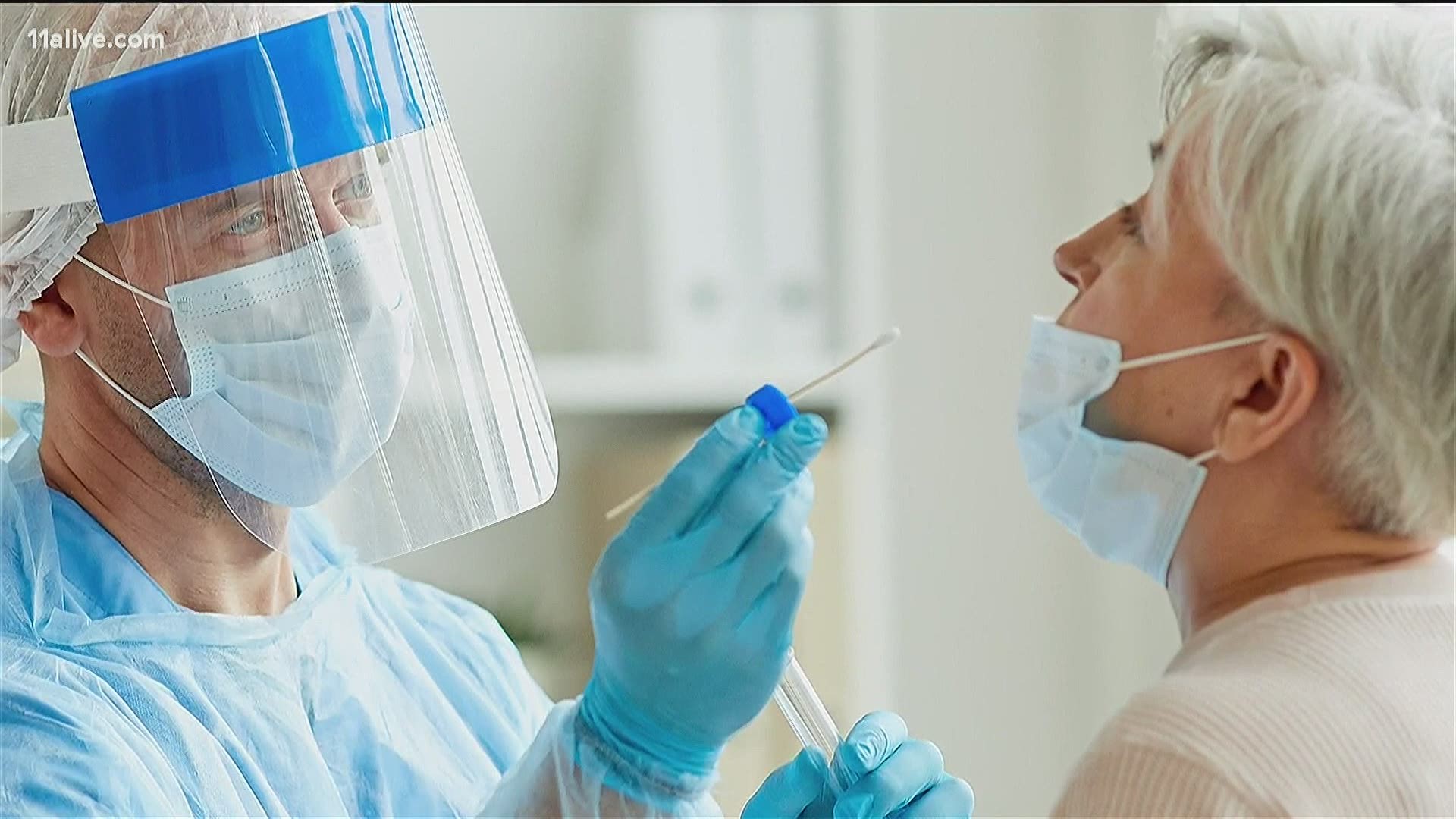BROOKHAVEN, Ga. — When 11Alive News first met Charles and Anita Gwin in September, they were lonely.
The married couple of 50 years were stuck inside their Brookhaven nursing home and unable to see family in person for months due to restrictions put in place to prevent the spread of COVID-19.
“I miss being around people,” Charles said at the time.
This past week, it got worse. Both are now in isolation after testing positive for COVID-19.
“So, they’re bored," said Andy Gwin, their son. "They’re by themselves.”
While Andy’s parents are expected to recover, they represent Georgia’s most vulnerable population, most impacted by the virus.
Since the pandemic started, the Georgia Department of Public Health (DPH) reports at least 18,108 nursing home residents have been infected; 9,882 caregivers sickened with COVID, and 2,973 residents have died.
On Tuesday, Gov. Brian Kemp announced the nursing home industry will be among first to gain access to the vaccine, but the Gwin’s are not sold on getting immunized just yet.
“This is exactly what he said, ‘I do not fully trust the vaccine. Once others have tried it without any massive side effects, then maybe,’” and Andy, reading a message from his father. “I have to say, I somewhat agree with him on that.”
According to the pharmaceutical trials, some side effects have included mild fever, arm soreness and minor body.
Neil Pruitt will likely spend a lot of time over the next few months convincing residents, like the Gwin’s, to take the vaccine. He’s CEO of Pruitt Health, Georgia’s largest long-term care provider, which operates Gwin’s nursing home, and dozens of others.
“I understand that people are nervous, but it’s important that we all stand up and be vaccinated. I myself am willing to be vaccinated,” said Pruitt.
DPH says the first batch of vaccines could be in the hundreds of thousands.
Pruitt is unsure how many doses the state will provide his faculties, but he believes once the Food and Drug Administration approves the vaccine, all his residents and staff could get immunized within two weeks.
Pruitt hopes the state will deliver the doses directly to nursing homes instead of requiring residents and staff to go to hospitals to get the shots.
“We have our pharmacies, our preferred method," Pruitt said. "We believe we will receive great participation because it will be the same nurses and pharmacists that our patients and our employees see every day.”
The company is not planning to make immunization mandatory, but Pruitt says there will be incentives to patients and staff who agree to get the vaccine.
“We’ll be giving away prizes, gift cards, making it exciting and celebrating the fact that we are almost at the end of this crisis,” said Pruitt.
The nursing home provider also plans to publish how many of its patients and staff have been vaccinated on its website.
Pruitt also plans to ask residents and staff to wear wrist bands to help it keep track of who has been vaccinated.
Once the FDA approves the vaccines, Pruitt expects to start the vaccinations within 48 hours.

